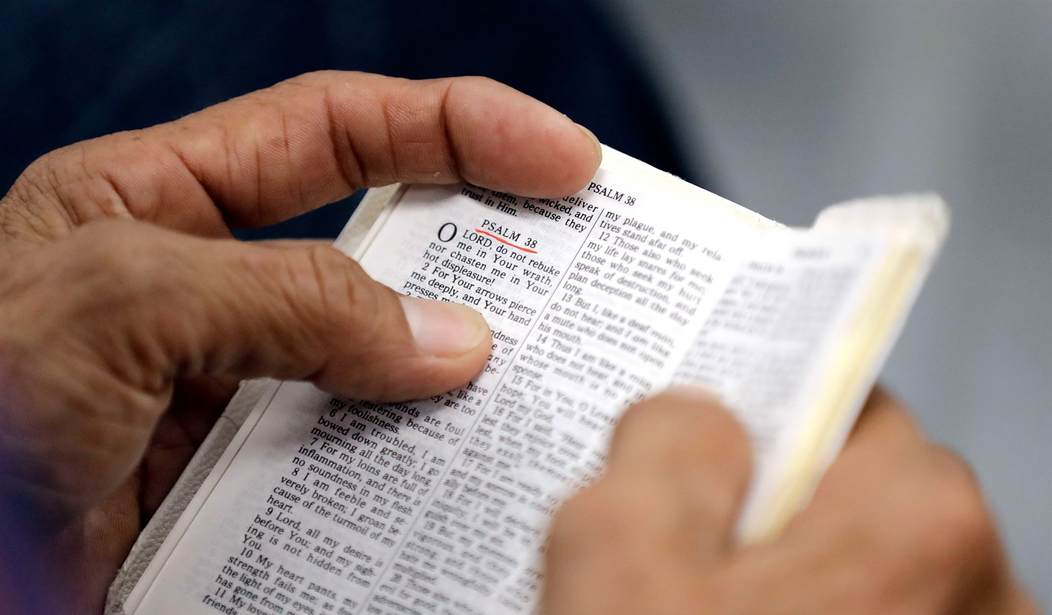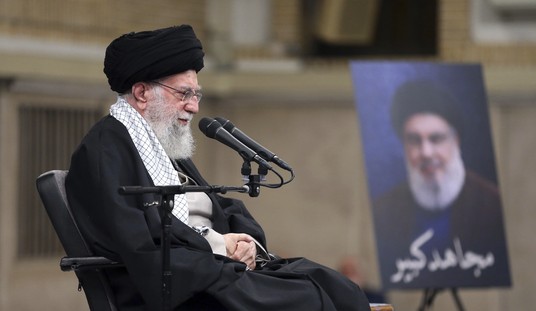Author's Note: All previous volumes of this series are here. The first 56 volumes are compiled into the book "Bible Study For Those Who Don't Read The Bible." "Part Two," featuring volumes 57-113, was published in December 2022.
Welcome to our third and final “Psalm Summer” Bible study series. If you missed Part 1 or Part 2, we forgive but won’t forget, so lovingly, I say, “Please read both now.” Meanwhile, the rest of us will enjoy eight minutes of soothing music.
Now, we are ready to delve into Psalm 110, a significant Psalm in the New Testament, being the most frequently quoted. It is also considered a Messianic prophecy. With only seven verses, there is no need to skimp. We begin as it begins, acknowledging the author, “Of David. A psalm”:
“The Lord says to my Lord: ‘Sit at my right hand until I make your enemies a footstool for your feet.’ The Lord will extend your mighty scepter from Zion, saying, ‘Rule in the midst of your enemies!’ Your troops will be willing on your day of battle. Arrayed in holy splendor, your young men will come to you like dew from the morning’s womb” (1-3).
“The Lord has sworn and will not change his mind: ‘You are a priest forever, in the order of Melchizedek.’ The Lord is at your right hand; he will crush kings on the day of his wrath. He will judge the nations, heaping up the dead and crushing the rulers of the whole earth. He will drink from a brook along the way, and so he will lift his head high” (4-7).
Readers who double as Bible scholars will notice some familiar verses quoted by Jesus in (Matthew 22:41-45), (Mark 12:35-37) and (Luke 20: 42-43). All three ask, “Whose Son Is the Christ?” — written in some translations as “the Messiah.” Here is Matthew:
Recommended
“Now while the Pharisees were gathered together, Jesus asked them a question, saying, ‘What do you think about the Christ? Whose son is he?’ They said to him, ‘The son of David.’ He said to them, ‘How is it then that David, in the Spirit, calls him Lord, saying, "The Lord said to my Lord, Sit at my right hand until I put your enemies under your feet?” If then David calls him Lord, how is he his son?’” (Matthew 22: 41-45).
There is much to unpack in this passage. David wrote the Psalm, which means it was divinely inspired, but more than “inspired,” it reads like David HEARD a conversation. He likely did, which explains why the first verse begins, “The Lord says to my Lord.” So, what did David hear? Answer: “Sit at my right hand until I make your enemies a footstool for your feet.”
That is a theologically meaningful verse, partially answering the question Jesus asked the Pharisees, “Whose son is he?” The Pharisees might have been puzzled that Jesus requoted Psalm 110:1. Why? Long-time readers might recall Vol. 125, “The Right Hand of God,” with the following verse:
“Your right hand, Lord, was majestic in power. Your right hand, Lord, shattered the enemy” (Exodus 15:6). Also, in that study, I quoted Rabbi Jonathan Cahn, who told me, “The right hand is the hand of power.” Thus, is Jesus hinting that He is the all-powerful “son” who sits at God’s right hand? And that He is also Lord since Jesus said, “‘If then David calls him Lord, how is he his son?’”
Note that in Matthew’s passage, the Holy Trinity is referenced—Father, Son, and Holy Spirit — after Jesus said, “that David, in the Spirit, calls him Lord..”
In Psalm 110, David also heard, “The Lord will extend your mighty scepter from Zion, saying, ‘Rule in the midst of your enemies!’” Zion means the land of Israel or Jerusalem or both. David hearing the “mighty scepter from Zion” can be interpreted that, as Lord, [Jesus] will rule with power and authority on behalf of Israel and Jerusalem.
Furthermore, in Psalm 110, did David hear about the End Times, receiving a sneak preview into the apostle John’s future Book of Revelation? It appears that way since David wrote how the Messiah would triumph when he recorded God’s words: “‘Rule in the midst of your enemies! Your troops will be willing on your day of battle. Arrayed in holy splendor, your young men will come to you like dew from the morning’s womb.”
My favorite part of Psalm 110 is verse 4, which references “Melchizedek.” I find him a uniquely fascinating biblical character widely believed to be the prefiguration of Jesus Christ. Requoted from Psalm 110:4 is Hebrews 7:17: “You are a priest forever, in the order of Melchizedek.”
The mysterious Melchizedek, first mentioned in Genesis 14:18-20, is the “king of Salem.” However, no lineage is recorded, which is highly unusual for Bible kings. Here is his 56-word, power-packed, and essential passage:
“Then Melchizedek king of Salem brought out bread and wine. He was priest of God Most High, and he blessed Abram, saying, ‘Blessed be Abram by God Most High, Creator of heaven and earth. And praise be to God Most High, who delivered your enemies into your hand.’ Then Abram gave him a tenth of everything” (Genesis 14:18-20).
The most thorough description of Melchizedek is in Hebrews 7. Also, see Vol. 50 and Vol. 1. Here is an explanation of “You are a priest forever, in the order of Melchizedek.”
Melchizedek resembles Jesus by being fully God and fully Man. We saw that when Melchizedek gave a blessing by “God Most High” and then praised and thanked God — “Praise be to God Most High.” Quoting from Hebrews, describing Melchizedek:
“He is without father or mother or genealogy, having neither beginning of days nor end of life, but resembling the Son of God he continues a priest forever” (Hebrews 7:3).
Stay tuned for another study about Melchizedek. I feel called to write about him again since Vol. 50 was three years ago. In my humble opinion, Melchizedek does not receive enough discussion as the prefiguration of Jesus Christ in Genesis.
Finally, David’s Psalm 110, written about 1000 years before Christ's birth, is multidimensional and vividly describes Jesus as Lord. No wonder the Psalm is quoted or alluded to 24 times in the New Testament. Amen to that!
Thanks for reading this far. Please inform me if you were impacted by or enjoyed reading the three-part “Psalm Summer” series. If so, it could intermittently continue —renamed for different seasons — since 150 Psalms provide gigabytes of content. For example, our six-part “Common Phrases Rooted in the Bible” series exceeded its initial run due to “popular demand.” I look forward to your thoughts since this is an interactive Bible study.
Myra Kahn Adams is a conservative political and religious writer with numerous national credits. Her book, "Bible Study For Those Who Don't Read The Bible," reprints the first 56 volumes of this popular study. "Part 2,” with the same title, reprints Vols. 57-113. Order it here.
Myra is also the Executive Director of SignFromGod.org and the National Shroud of Turin Exhibit. Both are educational donor-supported ministries dedicated to building a permanent Shroud of Turin exhibit in Washington, D.C. The National Shroud of Turin Exhibit will host a four-day exhibit at the National Eucharistic Congress in Indianapolis, Indiana, July 17-21. Contact: <MyraAdams01@gmail.com>

























Join the conversation as a VIP Member